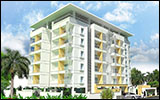11-year-old played dead to survive Syria massacre
Associated Press
- Boy says he used sibling’s blood to fool attackers
Beirut, 01 June 2012: When the gunmen began to slaughter his family, 11-year-old Ali el-Sayed says, he fell to the floor of his home, soaking his clothes with his brother’s blood to fool the killers into thinking he was already dead.
The Syrian boy tried to stop himself from trembling, even as the gunmen, with long beards and shaved heads, killed his parents and all four of his siblings, one by one.
The youngest to die was Ali’s brother, 6-year-old Nader. His small body bore two bullet holes - one in his head, another in his back.
 “I put my brother’s blood all over me and acted like I was dead,’’ Ali told the Associated Press over Skype on Wednesday, his voice steady and matter-of-fact, five days after the killing rampage that wiped out his immediate family.
“I put my brother’s blood all over me and acted like I was dead,’’ Ali told the Associated Press over Skype on Wednesday, his voice steady and matter-of-fact, five days after the killing rampage that wiped out his immediate family.
Ali is among the few survivors of a weekend massacre in Houla, a collection of poor farming villages in Syria’s central Homs Province. More than 100 people were killed, many of them women and children who were shot or stabbed in their houses.
The killings brought immediate, worldwide condemnation of President Bashar Assad, who has unleashed a violent crackdown on an uprising that began in March 2011. Activists say as many as 13,000 people have been killed since the revolt began.
UN investigators and witnesses blame at least some of the Houla killings on shadowy gunmen called shabiha who operate on behalf of Assad’s government.
Recruited from the ranks of Assad’s Alawite religious community, the militiamen enable the government to distance itself from direct responsibility for the execution-style killings, torture, and revenge attacks that have become hallmarks of the shabiha.
In many ways, the shabiha are more terrifying than the army and security forces, whose tactics include shelling residential areas and firing on protesters. The gunmen are deployed specifically to brutalize and intimidate Assad’s opponents.
Activists who helped collect the dead in the aftermath of the Houla massacre described dismembered bodies in the streets, and row upon row of corpses shrouded in blankets.
“When we arrived on the scene we started seeing the scale of the massacre,’’ said Ahmad al-Qassem, a 35-year-old activist. “I saw a kid with his brains spilling out, another child who was no more than 1 year old who was stabbed in the head. The smell of death was overpowering.’’
The regime denies any responsibility for the Houla killings, blaming terrorists. And even if the shabiha are responsible for the killings, there is no clear evidence that the regime directly ordered the massacre.
According to the UN, which is investigating the attack, most victims were shot at close range, as were Ali’s parents and siblings. The attackers appeared to be targeting the most vulnerable people, such as children and the elderly, to terrorize the population.
This type of massacre - even more than the mortar attacks that have become daily occurrences in the uprising - is a sign of a new level of violence.
According to activists in the area, the massacre came after the army pounded the villages with artillery and clashed with local rebels following antiregime protests. Several demonstrators were killed, and the rebels were forced to withdraw. The executioners later stormed in, doing the bulk of the killing.
Syrian activist Maysara Hilaoui said he was at home when the massacre in Houla began. He said there were two waves of violence, one starting at 5 p.m. Friday and a second early Saturday.
“The shabiha took advantage of the withdrawal of rebel fighters,’’ he said. “They started entering homes and killing the young as well as the old.’’
Ali, the 11-year-old, said his mother began weeping the moment about 11 gunmen entered the family home in the middle of the night after arriving in a military armored vehicle and a bus. The men led Ali’s father and oldest brother outside.
“My mother started screaming ‘Why did you take them? Why did you take them?’ ’’ Ali said.
Soon afterward, he said, the gunmen killed Ali’s entire family.
As Ali huddled with his youngest siblings, a man in civilian clothes took Ali’s mother to the bedroom and shot her five times in the head and neck.
“Then he left the bedroom. He used his flashlight to see in front of him,’’ Ali said. “When he saw my sister Rasha, he shot her in the head while she was in the hallway.’’
Ali had been hiding near his brothers Nader, 6, and Aden, 8. The gunmen shot both of them, killing them instantly. He then fired at Ali but missed.
“I was terrified,’’ Ali said, speaking from Houla, where relatives have taken him in. “My whole body was trembling.’’
Ali is among the few survivors of the massacre, although it was impossible to independently corroborate his story. The AP contacted him through antiregime activists in Houla.




 Write Comment
Write Comment E-Mail To a Friend
E-Mail To a Friend Facebook
Facebook Twitter
Twitter  Print
Print 















